It’s December 31st, and one of my 2022 resolutions is to start using this blog more, so why not start today!?
I’m proud to say that I read over 130 books this year, and I noticed some interesting changes in my reading habits. To start, almost 40% of what I read was nonfiction, which is up from about 15% last year. I attribute some of this to a book club I am a part of, but I also just pushed myself to read more nonfiction, after reflecting on how much I enjoy it. I also got back into listening to audiobooks, so listening to Spotify took a hit in 2021. That’s okay though, for two of my favorite books this year were audiobooks about favorite musicians. Other titles were by favorite authors, many titles were about reckoning with America’s past, and one was by a debut author that shook me with her powerful words. Overall, another great year of reading!
So, here are my top ten titles of 2021 (in no particular order):
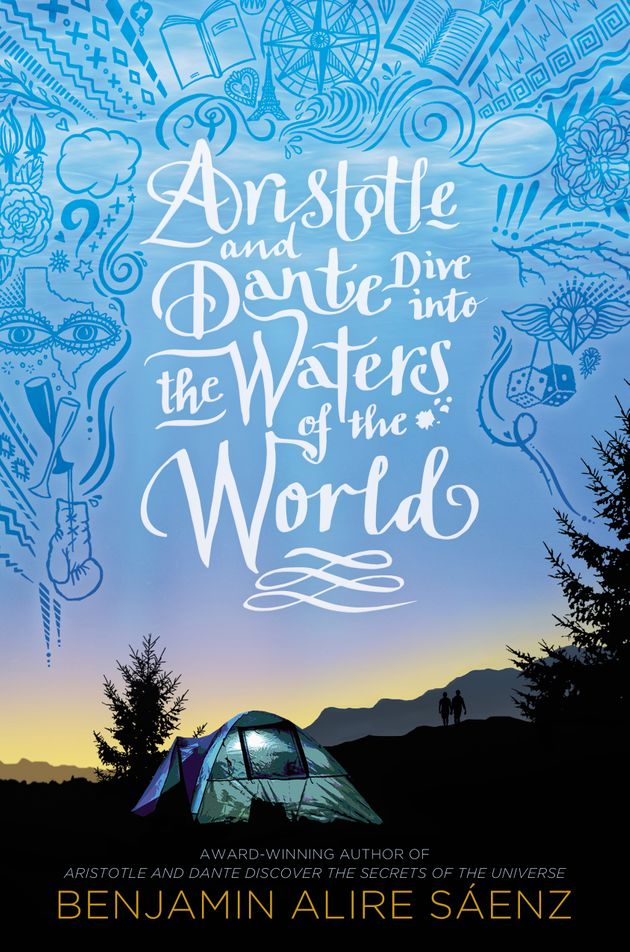
Aristotle and Dante Dive Into the Waters of the World by Benjamin Alire Sáenz
WARNING: Spoilers ahead for anyone who didn’t read Aristotle and Dante Discover the Secrets of the Universe.
It’s 1989, and Aristotle Mendoza and Dante Quintana are back for their senior year of high school. As the school year begins, Ari is learning to open himself up more to those around him. Ari is no longer the scared, angry teen who tries to stay invisible, and coming to terms with that is difficult. He begins connecting with his father, who tells him about his time in Vietnam, and the girls that used to hate and annoy Ari, Gina and Susie, soon become new friends. Dante means everything to him, but their strong love for one another scares Ari, for what will happen after senior year? Woven throughout the story is the AIDS pandemic that affects their community, and a wide variety of characters that either struggle with their cultural identity or commit racist acts. As Ari‘s relationships continue to thrive despite all he goes through, a heartbreaking moment shatters him in unimaginable ways.
I didn’t know that it was possible to love this book as much as this first one, but I did. I left the first needing Ari and Dante’s story to continue, and this book did just that. Ari and Dante’s love is beautiful and real, and the supporting cast—especially the Mendozas and Quintanas—were such beautiful people in their own right. Tears will flow for this tender tale, but they’ll be worth it. Again, Sáenz’s gorgeous prose will keep you from putting this book down. Readers will gain so much insight about the world from Ari and Dante, and they’ll treasure every minute of it. I know I did.

The Sum Of Us: What Racism Costs Everyone and How We Can Prosper Together by Heather McGhee
Heather McGhee, an expert in economic and social policy, shares with readers why the American economy often fails its people. After extensive research into many aspects of it, she found one root problem: racism. Though many of us many not realize it, over centuries, racism has seeped into every aspect of our lives. They’re all interconnected, from public education to integration to the housing market. The question is, can we fix it? McGhee argues yes. She introduces the zero-sum policy–the idea that progress for some people must come at the expense of others–and proves it wrong. Racism not only hurts people of color, but also white people too. McGhee’s compassionate, yet honest, account introduces us to the tremendous challenges our country still faces. Racism has cost us so much, but she reminds us that there is reason for hope. We can still prosper together, and honestly, we have no other choice right now. “We need to refill the public pool of goods for everyone.”

Flight of the Puffin by Ann Braden
Meet Libby. She’s an budding artist who is tired of most people—teachers, classmates, and neighbors—assuming she is a bully just like the rest of her family. In fact, Libby is far from it, and she knows it. To prove it to herself, she starts using her artistic ability to make colorful notecards with positive messages, and leaves them for others to find. Little does she know that her words set off a chain reaction that will lift up three other kids who need her encouragement at that time.
What a fabulous story that is so necessary right now! Libby and the other three kids are all unique and imperfect, but there’s so much to love about each of them. This book inspired my own kids, and some of my students, to make our own notecards of inspiration.
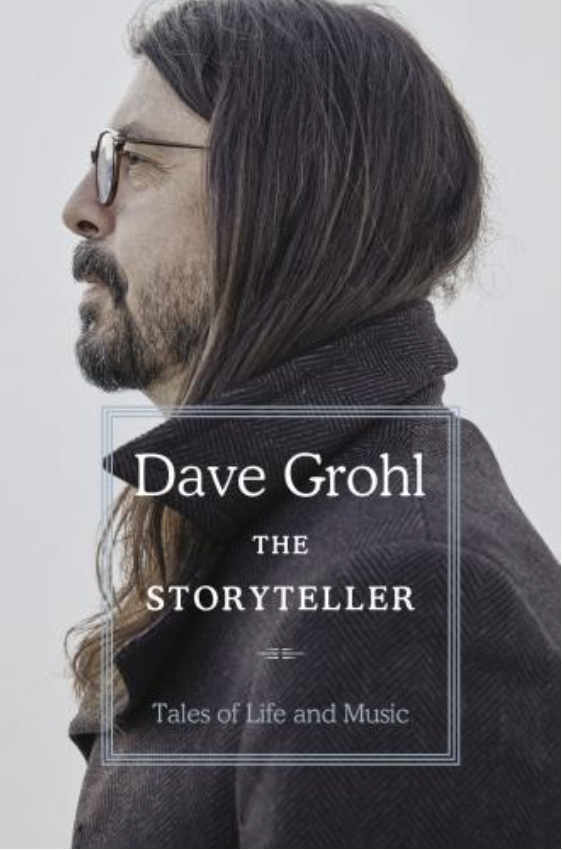
The Storyteller: Tales of Life and Music by Dave Grohl
Dave Grohl. SO much to say about one of my all-time favorite musicians. He has such talent. He taught himself the drums, then became the drummer for the punk band Scream, and afterward Nirvana. Just months after losing Kurt, he put his heart and soul into a new album, singing and playing pretty much every instrument. This became the first Foo Fighters album. His talents are not just music-related. He is a gifted writer, which can be seen in his various songs and in this book. (I plan to use one of these stories/essays in my classroom.) He is a loving son who’d do anything for his mother, including introducing her to Neil Diamond. He’s a devoted dad, who traveled across the globe just to go with his two oldest daughters to their father-daughter dance. He’s a fabulous friend and band mate, someone who puts people before earning a buck. Now I know he’s a brilliant writer, and an insanely funny and humble man. I found myself laughing aloud and shedding tears.
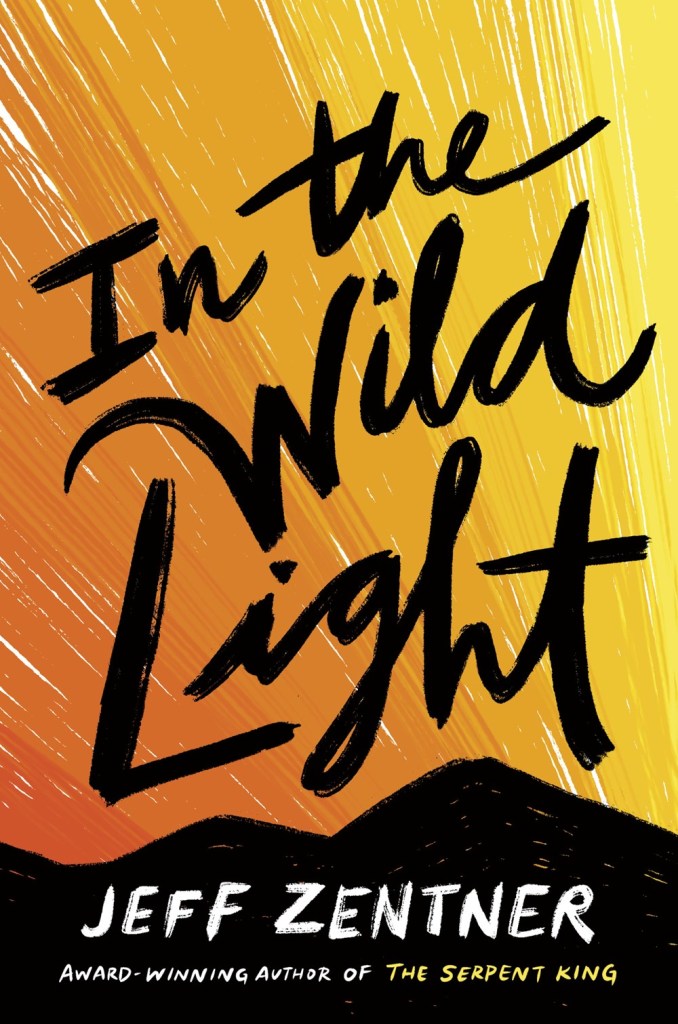
In the Wild Light by Jeff Zentner
Cash Pruitt lives in Sawyer, Tennessee, a small town filled with gorgeous rivers and rolling hills, but also addiction. He already lost his mother to drugs, and his beloved Papaw is slowly dying from emphysema. Addiction did create one positive in his life though: Delaney Doyle. A scientist at heart, and a true genius, Delaney teaches Cash so much about the world, and he provides a distraction from her addict mother. They are still each other’s lifelines. On one of their trips into the wild, Delaney makes a scientific discovery that changes their lives: she earns both Cash and herself full scholarships to a Connecticut boarding school. Deciding to go, Cash can’t help but wonder what this school will do for him. His experience ends up being more than he ever could have imagined.
I cried more times than I could count. Jeff Zentner has a remarkable talent for creating realistic, lovely, unforgettable characters. I loved the friendship of the foursome—Cash, Delaney, Vi, and Alex—Papaw, Mamaw, and I adored Cash’s connection with Dr. Adkins, and poetry. (I have 4 pages of poetry quotes alone that I can’t wait to share with students!) Love and death are woven into this story in a variety of ways, and I enjoyed seeing that Zentner snuck his other books into this one.
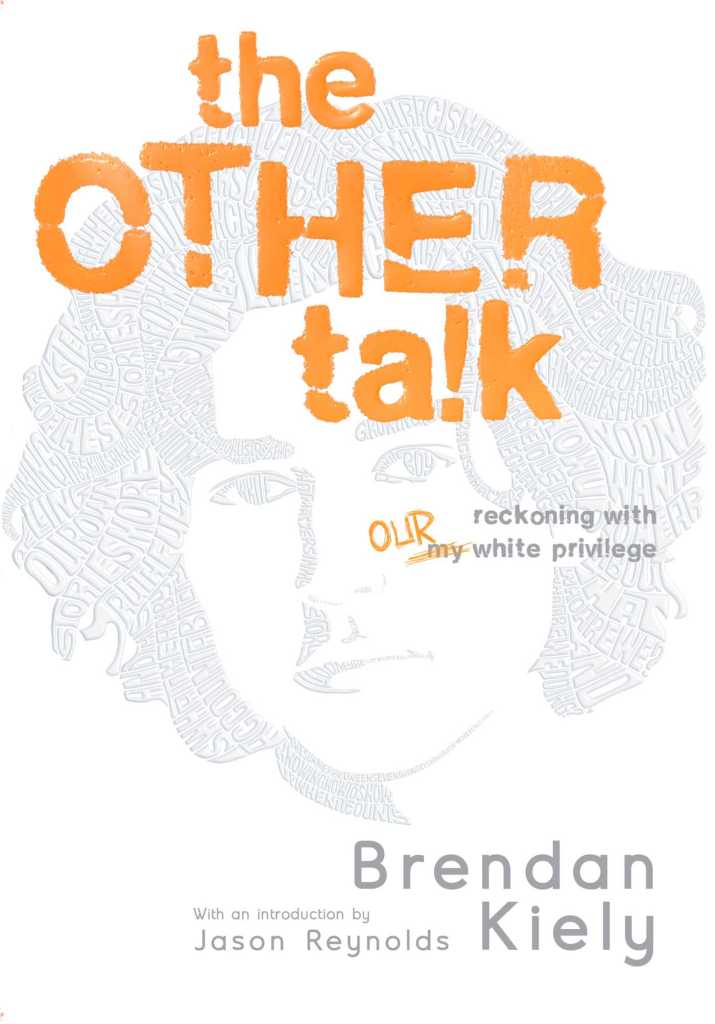
Most children of color get “the talk” when they are young—how to speak and behave around police and other people with authority and power. In this book, author Brendan Kiely has “the other talk” with his white readers about racism and white privilege. He reminds readers that we need this talk again and again, for it’s only when we listen—really listen—that we can learn, and then show up and speak out about it racism and other forms of injustice.
Brendan’s “other talk” is exactly what young white teens need. As a former teacher, and an award-winning author who’s traveled the country to speak with teens, his honesty and friendly tone will hook his audience. They’ll feel comfortable reading about people and events in history one moment, and then how Brendan made his own mistakes the next. This combination proves how we all can learn from history to then do better.
This is a must-read for every white person, teens and adults. I listened Brendan—really listened—and will continue to do so. Every single day. Only with that constant learning will I be able to “show up and speak out.”

17-year-old Maverick Carter is the proud son of King Lord legend, Adonis Carter. Lil’ Don, as he’s known around Garden Heights, has his smart, beautiful girlfriend, Lisa, and a cousin, Dre, who’s more like a brother. Life in the Garden isn’t easy though. Maverick doesn’t really want to sell drugs, for his father is in prison and he doesn’t want that same future, but once he finds out he’s a father himself, he doesn’t have much of a choice. He’s got to provide for his son, for money is tight at home, even with his mother working two jobs. After getting a part-time job at a local store that’s run by his neighbor, Mr. Wyatt, he starts realizing that being a King Lord is keeping him from being the man he wants to be, and who his girlfriend wants. But you can’t just leave the King Lords, and Mr. Wyatt doesn’t pay as much as selling drugs does. But just when Maverick thinks he has a plan, a murder in the Garden changes everything.
I finished within 24 hours! Maverick’s story is beautiful, powerful, and oh so important. I loved seeing all of these connections to The Hate U Give, and even to another author’s book as well (see if you can find it). The Hate U Give still needs to be read first. You’ll fall in love with Big Mav, and have that much more sympathy for him when he makes mistakes, and sometimes learns from them, in this book.

Will by Will Smith with Mark Manson
In his memoir, Will Smith shares everything from being the funny kid in West Philadelphia (born and raised) in constant fear of disappointing others, to the first rapper to win a Grammy, to becoming the “biggest movie star in the world.” Readers get an inside look at Will’s various relationships, from his demanding, sometimes abusive father, to his relationship with Jada and his three kids. Through it all, Will just wanted to be the biggest and the best, but it still wasn’t enough. Will dealt with inner demons, often struggling to focus on his emotions and instead put on a show. Follow Will on his journey of self-discovery. You’ll connect with him more than you ever thought possible.
**I recommend listening to the audiobook for this one, since Will reads it himself!
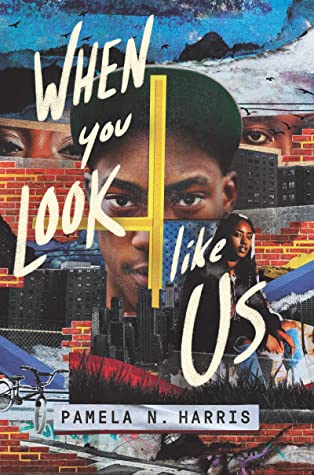
When You Look Like Us by Pamela N. Harris
Jayson “Jay” Murphy knows how people like him are viewed. When you look like him—brown skin, braids, same hoodie everyday—everyone believes you’re trouble. So when his older sister Nicole goes missing, no one seems to care. Living in public housing and having the local drug dealer for a boyfriend must mean she deserved whatever happened to her, right? Yes, life has been tough for Jay and his sister, with their father passing away from cancer and their mother drinking her way into prison, but they have their fabulous, loving grandmother, MiMi, who has been there for them every step of the way. After feeling guilty about blowing his sister off on the night she disappeared, Jay sets out to bring her home.
What an important story. Pamela N. Harris reminds readers that we can’t believe the racial stereotypes our country has created. People from certain neighborhoods, like the Ducts, are people too. They need to be seen, and with this book they can be.
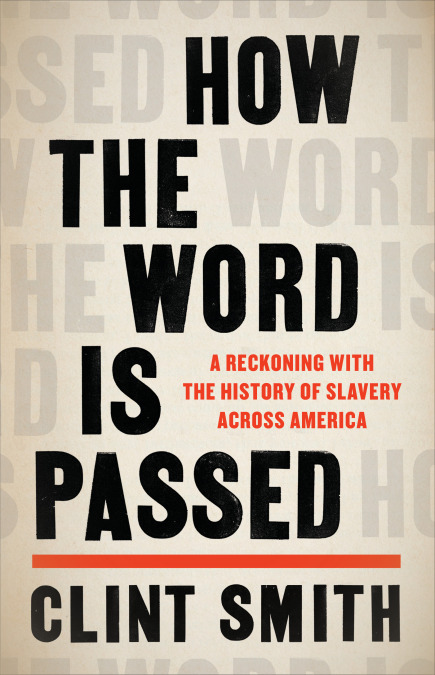
How the Word Is Passed: A Reckoning with the History of Slavery Across America by Clint Smith
Clint Smith begins his debut nonfiction title by reminding his readers that there is a need to remember our nation’s history. Starting in New Orleans, Smith leads readers on a tour of various plantations, monuments, graveyards, and landmarks, all of which have a past. Through interviews, we meet some people who are honest about America’s past and those that are not. Entwined with the interviews is Smith’s extensive research, which, when put together with the interviews, teach readers how slavery has been key in shaping our country’s past, present, and ourselves as Americans. Even if I had never read Clint Smith’s poetry, which I have read and loved, I would have known he was a poet at heart. His writing is melodic, and I quickly fell into a rhythm reading it. I loved how he organized the book into the different places he visited, for I felt like I was on a journey with him. What an important and powerful read!
















 4. I’m still grading. Well, this one is a bit of a stretch. I’m not grading the same as I once did, and I don’t think I ever will again. After years of doing my own research and having the desire to try, I have finally gone “gradeless.” I have read titles by Alfie Kohn and Maja Wilson about rethinking grades, but what finally gave me the guts to try it was a combination of reading Sarah M. Zerwin’s
4. I’m still grading. Well, this one is a bit of a stretch. I’m not grading the same as I once did, and I don’t think I ever will again. After years of doing my own research and having the desire to try, I have finally gone “gradeless.” I have read titles by Alfie Kohn and Maja Wilson about rethinking grades, but what finally gave me the guts to try it was a combination of reading Sarah M. Zerwin’s 




